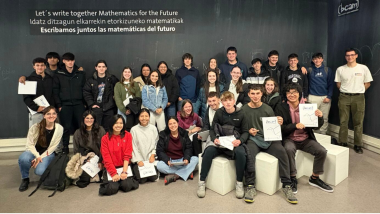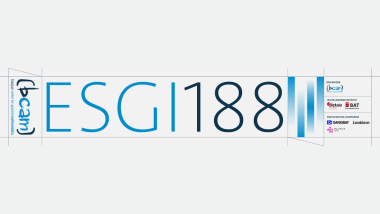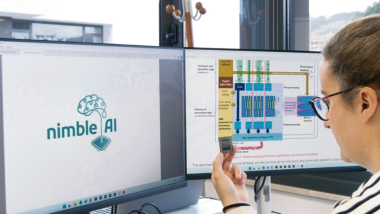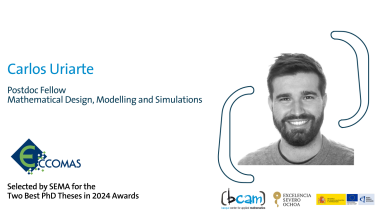BATERA the Mentoring programme at BCAM has successfully completed its first quarter
Following the good reception of the program, it will continue to be carried out with the rest of the mentor-mentee pairs in the second and third quarters of the academic year
The objectives of the program revolve around guiding, supporting, instructing, and connecting with the young research staff in their journey through the process of studying and learning a PhD. BATERA guides them in their reflection on the goals they want to achieve in their career, the competencies they want to acquire, and the career options that are interesting to consider.
Each doctoral experience is different and they’re not easy, that is why role models are important for young researchers. Everything is easier when there are references, a person who has already lived through it and makes it clear that the phases they must go through are normal and necessary to complete the learning process. The Basque Center for Applied Mathematics - BCAM with this initiative aims to help and improve the experiences of young research staff, and at the same time, create a communicative network that serves to transfer knowledge between mentors and mentees. In addition to benefiting the staff, it also promotes synergy among the research staff of the center.
Dr. Dae Jin Lee, a mentor in the BATERA program, having experienced both parts of the program, agrees: "I have been mentee and mentor at different stages of my career, and it is definitely a win-win experience... An important and "normal" point is that you have to create a positive atmosphere between mentee and mentor, and the selection of partners is the key". The experience of Lorenzo Nagar, whose mentor has been Dae-Jin, confirms the importance that Dae-Jin highlights on the selection of partners: "I already knew him and there was trust. Even though the program is over, I can still have that mentoring relationship with Dae-Jin". But he clarifies that it "still depends on a case-by-case basis."
"I think it's a great idea if the matching is done correctly. People should be encouraged to say what they want or need (help, advice for the future, general advice...) so that the mentor can be someone close to the mentee's problem," adds Martín Parga, a mentee of the program. Mentoring is a tool to encourage and support people (both mentors and mentees) to continuously meditate on their learning and thinking processes. "It has been a useful space to talk about topics that sometimes do not have much space such as how to consider a multidisciplinary career in a system that does not always facilitate it, aspects of work-life balance, how to manage academic assessment pressures, etc." explains Dr. Miguel Aguilera, BATERA mentor.
Dr. Rodrigo Azevedo, mentor of the BATERA program expresses that aspects such as time management, stress, and frustration are problems that mentees raise and that mentors help them to face: "Some students will definitely benefit from this interaction, mainly in time management and mid-term planning of their careers, besides talking about the stress and frustration of the research process, which is always a common problem".
After the successful outcome achieved in this first quarter of BCAM's mentoring program, BATERA will continue in the second and third trimesters of the academic year. "I believe that the mentoring program can have a very positive effect on BCAM, and I hope that it will become an important part of running the center to build a stronger community. I will be happy to continue to be involved, either as a mentor or by helping to drive and develop the mentoring program," concludes Aguilera.
Related news
About the center
About the center




